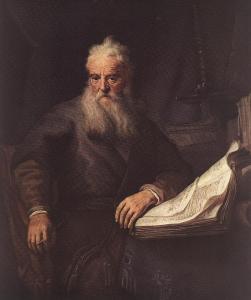(Lectionary for May 6, 2018)
 My denomination, the United Methodists, has been wracked by dissension for 45 years over questions of sexuality. As a result of our struggle, LGBTQ+ brothers and sisters have been attacked and demeaned as lesser persons, not worthy to be full members of the people called Methodist, and not able to be ordained as our clergy. In our 1972 Book of Discipline, the official repository of the faith and polity of our church, there first appeared the terrible phrase, “Homosexuality is incompatible with Christian teaching,” and despite fervent attempts to alter or delete this claim, it remains written in stone in the 2016 Discipline.
My denomination, the United Methodists, has been wracked by dissension for 45 years over questions of sexuality. As a result of our struggle, LGBTQ+ brothers and sisters have been attacked and demeaned as lesser persons, not worthy to be full members of the people called Methodist, and not able to be ordained as our clergy. In our 1972 Book of Discipline, the official repository of the faith and polity of our church, there first appeared the terrible phrase, “Homosexuality is incompatible with Christian teaching,” and despite fervent attempts to alter or delete this claim, it remains written in stone in the 2016 Discipline.
I have long found this debacle appalling and monumentally stupid, based as it is on dubious readings of perhaps seven out of context biblical verses. I have tried for decades to suggest that those readings are tendentious at best and finally quite wrong. I have written and spoken my objections in numerous venues, but the church has failed to take what I, and an increasing host of others, have been saying. We all await the findings of still another commission of the church that will report to a special called session of the General Conference in 2019, the legally constituted body for the whole church, the only one that may speak for the church. My expectations are low for this group, however faithfully they may have done their work. Louder dissension will ensue, leading perhaps to a split in the church. And here my anger and frustration run towards sorrow. My wife and I worshipped in a Presbyterian church for nearly five years as protest against this to my mind ridiculous question. And though we are now back in a United Methodist church in Los Angeles, it is only because in this locale of our church, this issue is not, when all is said and done, not much of issue at all.
 It is notable that Acts 10 records a story that, if taken with full seriousness, could play a prominent role in dealing with this divisive issue. The earliest Christian communities were faced with a dilemma that mirrors in certain respects what we UM’s face in the 21st century. The issue was also concerned with the question of who is welcome in the emerging church. There was little doubt in the minds and hearts of the first followers of Jesus the Jew that if anyone would claim discipleship of this resurrected one, he or she would need to become fully Jewish, would need to be circumcised if a male, while all would need to follow the strict laws of food, clothing, and specific activities that marked anyone as Jewish in the first century.
It is notable that Acts 10 records a story that, if taken with full seriousness, could play a prominent role in dealing with this divisive issue. The earliest Christian communities were faced with a dilemma that mirrors in certain respects what we UM’s face in the 21st century. The issue was also concerned with the question of who is welcome in the emerging church. There was little doubt in the minds and hearts of the first followers of Jesus the Jew that if anyone would claim discipleship of this resurrected one, he or she would need to become fully Jewish, would need to be circumcised if a male, while all would need to follow the strict laws of food, clothing, and specific activities that marked anyone as Jewish in the first century.
In Paul’s letter to the Galatian Christians, he roundly upbraids Peter, the Master’s parade follower who has become a veritable lion of the church, with eating with Gentiles while claiming that he would never consort with non-Jews under any circumstances. Paul points out Peter’s hypocrisy, because Paul has become in his ministry the chief missionary to the Gentiles. This suggests, as many have concluded, that there is a decisive split in the early church between those who would restrict fellowship to those fully Jewish (Peter and others) and those who would open the fellowship to all who receive the name of Jesus and who receive the gift of the Holy Spirit (Paul).
All the more amazing then is this very long and detailed story of Peter and the Gentile Cornelius recorded in Acts 10. There is little use arguing whether this story is a fully historical one, that it accurately reports the conversion of Peter to a belief in full inclusion for Jew and Gentile alike. Whether historical or merely a tale told by Luke, the fact remains that it is in the Bible, and as such is worthy of careful reflection by all who care for the Bible’s authority and power.
Cornelius is said to be a Centurion, that is a significant officer of the Italian Cohort of Roman legionnaires, stationed in the far-flung military outpost of Caesarea in the Roman Empire. However, he is also a “devout man who feared God,” that is he worships with the Jews as a Gentile in sympathy with his Jewish friends. Of course, he can never be a full member of the Jewish community, because he is only a Gentile (Acts 10:1-2). One afternoon, Cornelius has a vision where an angel of God calls to him and bids him invite to his house one Peter, who is staying in the house of a tanner near the seashore at Joppa. Cornelius is terrorized by this vision, but is calmed when the angel tells him that his prayers and large gifts to the Jewish community have been noticed and accepted fully by God. Furthermore, Peter has important things to say to him.
While messengers from Cornelius are on their way to Joppa, Peter has his own vision, and it is a corker! He is hungry and orders lunch, but before his food arrives he sees in a trance something like a huge sheet filled with all sorts of animals, reptiles and birds among many other four footed creatures. While gazing at the sheet, writhing with the creatures, a voice commands Peter to “Get up! Kill and eat!” And the Jewish Peter is properly scandalized and refuses. “By no means, Lord! I have never eaten anything profane or unclean” (Acts 10:15). After all, he implies, I am a good Jew; I know what to eat and what to avoid. The voice is not finished. “What God has made clean, you must not call profane” (Acts 10:15). Peter has been commanded by a heavenly voice to break his solemn vow as a Jew never to eat certain foods. And he was rightly “puzzled” by all this. At that very moment the messengers from Cornelius arrive to take him to their leader.
Peter goes to Cornelius’s house, and announces to him, “You know that it is unlawful for a Jew to associate with or to visit a Gentile, but God has shown me that I should not call anyone profane or unclean” (Acts 10:28). Cornelius then urges Peter to say what he has been sent to say, and Peter preaches to Cornelius’ household the gospel as he has been doing since the resurrection of Jesus. The result of his preaching is as it was at Pentecost. The Holy Spirit falls on the assembled hearers and they begin to speak in other languages and to extoll God. Those circumcised Jews who came with Peter were astounded that the Spirit had fallen on Gentiles just as it had on them, the Jews. Peter proclaims, “Can anyone withhold the water for baptizing for these people who have received the Holy Spirit just as we have” (Acts 10:47)? For as he said earlier, “God shows no partiality” (Acts 10:34).
And with that wonderful phrase, Peter utters a mouthful of joyous good news to the world. And for my LGBTQ+ friends special good news! If there are in fact LGBTQ+ people who love Jesus and want to follow him with their whole hearts and lives, and there are because I know them, then there is finally nothing to prevent their baptism and full inclusion in any Christian community worthy of the name. Take heed, my United Methodist colleagues! Denying the full inclusion of these persons is finally to limit the love and full inclusion of God in Jesus. To continue such a denial is to fall not just into egregious error; it is to brush up against blasphemy, against the rejection of God’s desire for the world that God alone created. For Jesus is not Lord of some; he is Lord of all.











